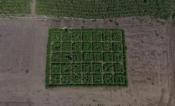
Genetic modification turbocharges photosynthesis and drastically improves crop growth
“That’s our goal, to make a crop that has a solution to all photosynthetic problems,” study author Amanda Cavanagh, postdoctoral researcher at the University of Illinois, told Gizmodo.
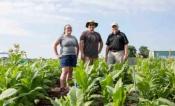
Can hacking plants feed the world? The research looks good
Plants are good at what they do — turning sunlight into food. However, some researchers have found the leaf world could improve, and that could have a major effect on the world’s growing population.
By: Leadership, a Nigerian newspaper
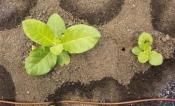
Plant scientists have found a way to 'hack' photosynthesis. Here's why that's a big deal
If the preliminary research pans out, we may have a new way to feed the world's growing population.
By: Denise Chow | NBC News MACH
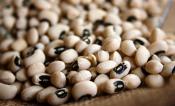
As Nigeria makes final move to commercialise Bt cowpea
After nine years of intensive trials of the Bacillus thuringiences (Bt) cowpea, Nigeria finally begins the final processes towards commercialisation.
By: Leadership, a Nigerian newspaper
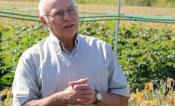
How to feed the world by 2050? Recent breakthrough boosts plant growth by 40 percent.
Recent advances to address hunger through agricultural discovery will be highlighted at this year’s annual meeting of the AAAS.
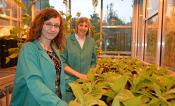
International Women’s Day 2019: Spotlight on Scientists of the RIPE project
As part of SIN USA’s celebration of International Women’s Day 2019, SIN Chicago profiled four early-career scientists from the RIPE project.

How can we feed 11 billion people?
The challenge to produce enough food to feed our growing population.
By: BBC World Service | The Inquiry
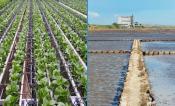
8 innovative drought solutions that we can count 0n
A review on anti-drought measures that are in development and in actual use.

Bill Gates wants to hack photosynthesis
A new video highlights some efforts Gates is funding to make plants grow faster.
By: Ben Paynter || Fast Company
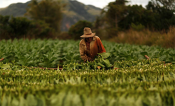
Breakthrough in plant engineering could boost productivity, feed millions more
The yield of many staple crops could be boosted by 40 percent by a new process that adjusts the way they turn sunlight into energy.

New greenhouse coming to U of I's Research Park
A new state-of-the-art greenhouse is coming to the University of Illinois' Research Park.
By: Haydee Clotter || Illinois Fox News

Fixing a flaw in photosynthesis could massively boost food production
Intelligent design has triumphed where evolution has mostly failed. Biologists have boosted the biomass of tobacco by around 40 per cent by compensating for a fundamental flaw in photosynthesis.
By: Michael Le Page | New Scientist
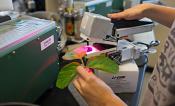
Scientists have 'hacked photosynthesis' in search of more productive crops
There's a big molecule, a protein, inside the leaves of most plants. It's called Rubisco.
By: Dan Charles | National Public Radio (NPR)
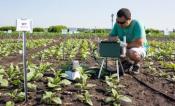
Plants botch photosynthesis 20% of the time. Fixing that could change agriculture
Our oxygen-rich air is confusing as hell to a plant.
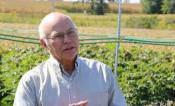
Wired In: Donald Ort
Wired In: Meet Donald Ort, the Robert Emerson Professor of Plant Science and Crop Sciences at the University of Illinois.
By: Paul Wood | The News-Gazette
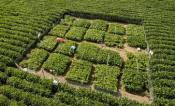
Illinois research combats food insecurity
Established in 2012, RIPE was created to engineer plants to help solve food insecurity. Since it began, it has received more than $70 million in funding.
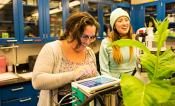
Hacking photosynthesis to re-engineer crop plants and feed the world
The next 'green revolution' will necessitate a radical redesign of how plants work.
By: Quirks & Quarks | CBC Radio
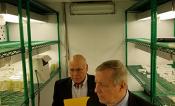
Senator Durbin calls for more research funding after touring RIPE project
U.S. Senator Dick Durbin visited the RIPE project and said he hopes to increase federal funding for scientific research.
By: Jim Meadows | Illinois Public Media

RIPE Researcher Lisa Ainsworth honored with NAS Prize
Elizabeth (Lisa) Ainsworth will receive the 2019 NAS Prize in Food and Agriculture Sciences.

UK aid partners with Gates Foundation to tackle global food insecurity
UK aid is tackling global food insecurity through a new project with the Bill & Melinda Gates Foundation.
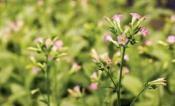
Improve photosynthesis and increase crop yield
Bioengineering corrects defects in photosynthesis in tobacco and increases crop yield by 40%.
By: Katherine Bourzac | Chemical & Engineering News (C&EN)
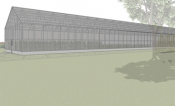
Research Park to welcome new greenhouse
Representatives from Illinois and the Bill & Melinda Gates Foundation will break ground on a new, state-of-the-art greenhouse.
By: WCIA News
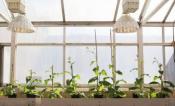
Gene engineers make super-size plants that are 40% larger
Researchers hope to create a new “green revolution” by improving photosynthesis.

Her Royal Highness, The Princess Royal, shines a light on women’s empowerment and ending extreme poverty
RIPE Director Stephen Long was invited to discuss the RIPE project with Her Royal Highness, The Princess Royal.
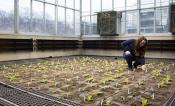
Reclaiming lost calories: Tweaking photosynthesis boosts crop yields
Improving crop yields to grow more food on less land is not a new challenge. But as the global population grows and diets change, the issue is becoming more urgent.
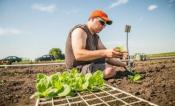
Scientists improve on photosynthesis by genetically engineering plants
Ever since Thomas Malthus issued his dire prediction in 1789 that population growth would always exceed food supply, scientists have worked to prove him wrong.
By: Julia Rosen | Los Angeles Times
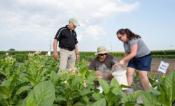
Scientists tweak photosynthesis and boost crop growth by 40 percent
Without photosynthesis, life as we know it wouldn't exist on earth.

RIPE project aims to help farmers grow more with less
Lab breakthroughs could lead to greater crop production, prepare for future population growth.
By: Daniel Grant | Farmweeknow.com

U.S. researchers find novel way to produce bigger plants
Photosynthesis holds the key to the air we breathe and the food we eat. But it’s not as efficient as it could be.
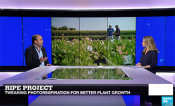
The high-tech food chain
From farmlands to kitchens, technology is playing a pivotal role in ensuring better yields and disease-free food.
By: France 24
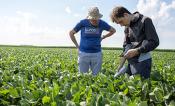
Episode 024: Improving Photosynthesis with Dr. Steven Burgess
Meet plant biologist Dr. Steven Burgess in this podcast and find out the skills needed to be a scientist.
By: NGSNavigators

Kampf gegen Hunger Satte zehn Milliarden
Die Weltgemeinschaft steht vor einer gewaltigen Aufgabe: Bis 2050 muss sie fast doppelt so viel Nahrung produzieren wie heute - ohne zusätzliche Ressourcen. Drei Forscher erklären, wie das gelingen könnte.
By: Julia Merlot | Spiegel Online

Tuning up photosynthesis to feed the world
An international team is working to tune-up photosynthesis in our most important crops to increase worldwide food productivity.
By: Bill Gates || Gates Notes
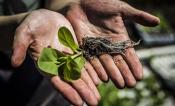
Genetically modified 'shortcut' boosts plant growth by 40%
Scientists in the U.S. have engineered tobacco plants that can grow up to 40% larger than normal in field trials.
By: Matt McGrath | BBC News

Research Park plans greenhouse for dynamic agriculture project
A group from the University and the Bill & Melinda Gates Foundation will break ground on a new greenhouse in Research Park.
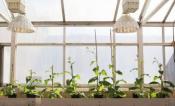
Engineered plants without photorespiration ‘glitch’ could help feed millions in coming decades
“With changing diets, increased urbanization—70 percent of world population by 2050—and the estimated 9 to 11 billion people that will be living by the second half of this century, it is estimated that food production needs to increase by as much as 70-100 percent to supply enough food to meet demand. ” South is one of the researchers who has made what could be a major breakthrough in boosting plant production.
